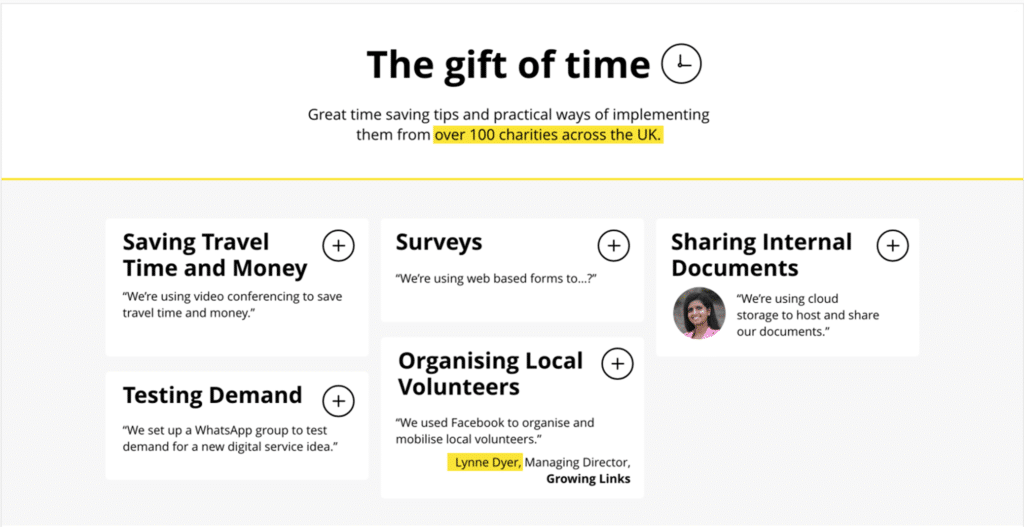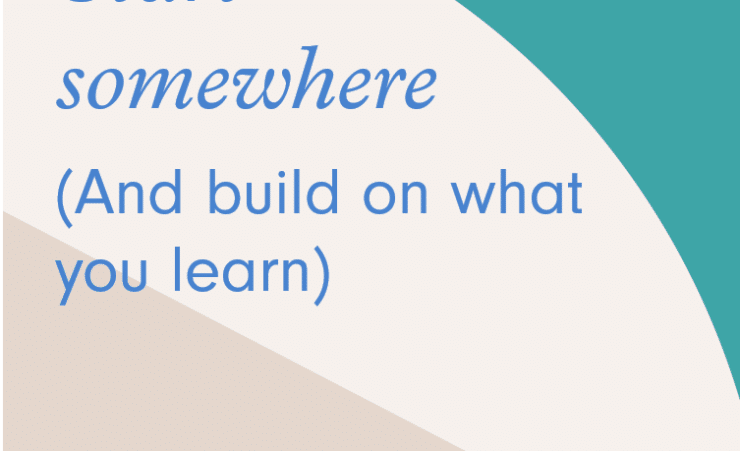
The gift of time: Practical tech tips and what we learnt from sharing them
In our recent study looking at helping to make technology imaginable and usable for small voluntary organisations, we created a proof of concept website called ‘The gift of time’. This featured examples of how small voluntary organisations are using technology to make their services more relevant, accessible and efficient – including Growing Links, a small community interest company based in Penzance. In this blog, they share their experience of social tech and we reflect on what we learnt from sharing the stories of Growing Links and other small voluntary organisations.
Lynne Dyer, Growing Links:
Social media is an amazing tool for helping run our frontline service and raising awareness to the community, which in turn gives us more volunteers on the ground.
We created a Facebook page as a way of organising and communicating with volunteers. It helped to coordinate volunteers who were cooking hot meals for people vulnerably housed in the local community.
Now, with a following of over 1800 members, the page has grown. More than just a practical tool, the page has engaged the wider community who use it to share ideas and socialise. One knock-on effect of this, is increased awareness of the organisation’s projects and volunteer numbers. Here are some of our social media pros and cons:
Pros
- It’s popular with volunteers. Creating a forum or group on an existing social network already used by the community will make them more likely to engage with it.
- It enables a two-way conversation between staff, volunteers, beneficiaries and supporters.
Cons
- You’ll need a content policy and plan to guide what you will and won’t post and how often.
- The general public can be a challenge! Open public engagement can be time-consuming and in the worst cases can open staff up to abuse.
Ellie Hale, Centre for the Acceleration of Social Technology:
When we tested the site two things stood out:
- It was helpful for small organisations to see what others like them had achieved with tech.Stories of other small charities were more relatable and relevant, and several testers were drawn to the advice which had a charity worker’s face next to it as this gave it more credibility and personality: “It’s really useful to know they have one member of staff – sometimes tech can be a challenge if you’re small. I would choose a smaller charity’s example over a larger one as I can relate to this more and it’s within my budget.” It was also reassuring for people to see that sometimes the most familiar, accessible and free tech, like a Facebook page or WhatsApp group, were the most effective for solving an organisational challenge (precisely because it was familiar, accessible and free to their users as well). Tech doesn’t have to be big, new, shiny or expensive.
- Content needs to be short and punchy, with honest first-hand insights about advantages and drawbacks.People in a time-strapped small charity don’t have time to read lots of information, and need a concise breakdown to present back to colleagues: “I like the pros and cons, seems digestible and I can quickly gauge whether this is relevant or not to us as an organisation”… “they are useful if you are a staff member trying to present an idea to the team for buy-in.” Testers said the tool could go further by explicitly stating the time-saving potential, and step-by-step implementation plans, for each approach.
Having practical, relatable and trusted stories to inspire small organisations with what’s possible is clearly important. We plan to do more research to better understand what makes these stories ‘actionable’ – i.e. containing information that actually prompts someone to take action make a change, such as trying out a new tool or asking colleagues and clients what tech they currently use.


